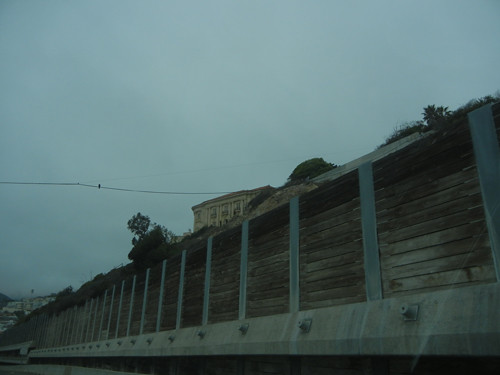
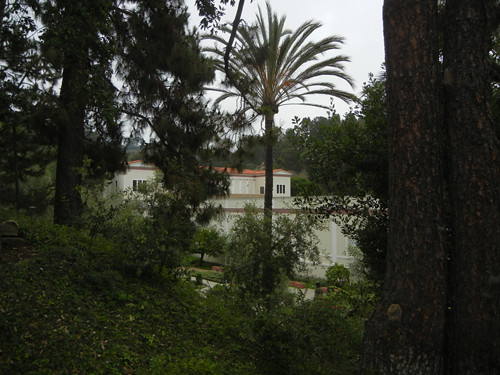
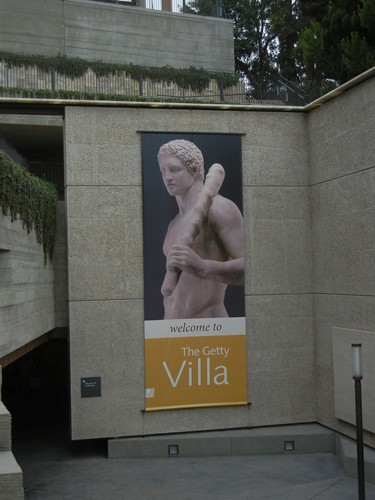 In July, I visited Los Angeles for the second time. During my first LA trip, I visited Getty Center and this time, for my first museum stop, I opted for its sister museum, the Getty Villa, an educational center and museum dedicated to the study of the arts and cultures of ancient Greece, Rome, and Etruria, located in Malibu. Its excellent collection completely justified its great fame.
In July, I visited Los Angeles for the second time. During my first LA trip, I visited Getty Center and this time, for my first museum stop, I opted for its sister museum, the Getty Villa, an educational center and museum dedicated to the study of the arts and cultures of ancient Greece, Rome, and Etruria, located in Malibu. Its excellent collection completely justified its great fame.Before we dived into exhibition, in the central courtyard, which contained an amphitheater, we were confronted by a gigantic metal wheel, with many concentric circles and spokes, and just above the center of the wheel, a small chair, at a terrifying height, all sitting squarely in the center stage. The wheel turned out to be the set for the Greek play, Prometheus Bound, attributed to Aeschylus. Too bad that the performances wouldn't start after we'd left Los Angeles. It would have been a wonderful night.

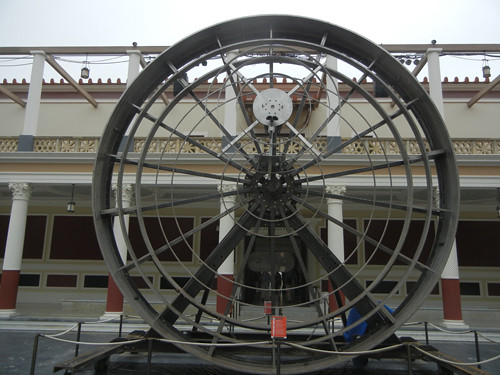
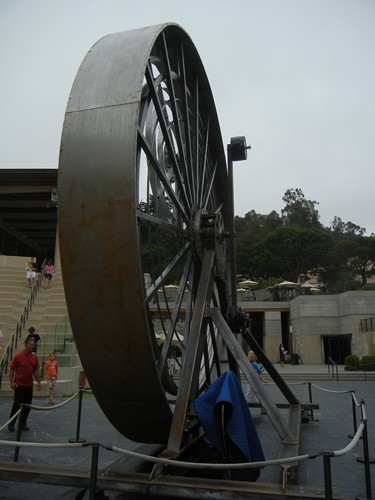
Going into the villa, we briefly admired its pleasant proportion and muted decor but the villa itself was only a diversion for the collections were the real deals.
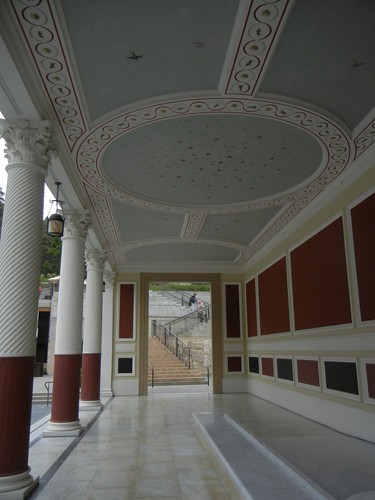
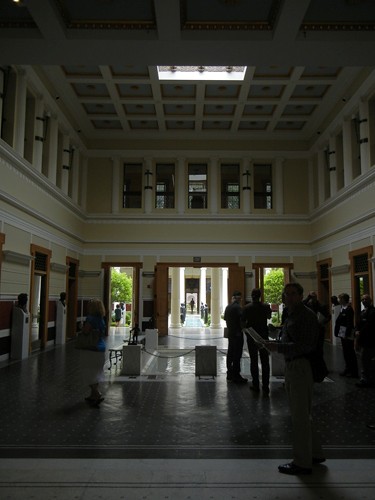
The first group of exhibitions consisted of Greek amphora and other kind vessels of different styles and functions and from different regions. I was no expert in that field and didn't try to comprehend all the subtleties; rather, I recorded whatever took my fancy:
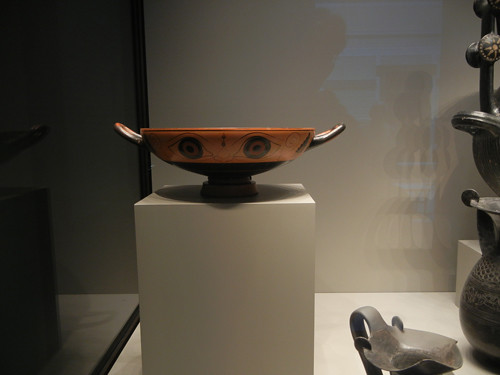
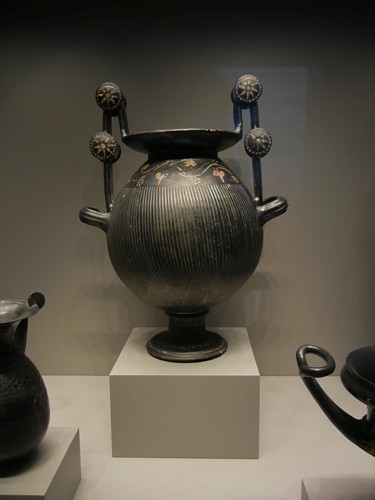
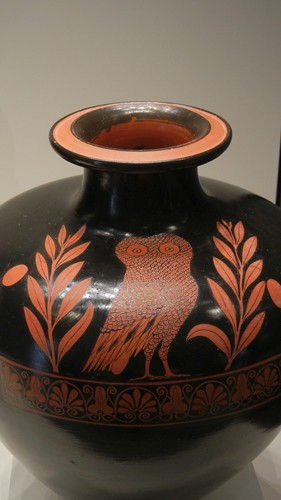
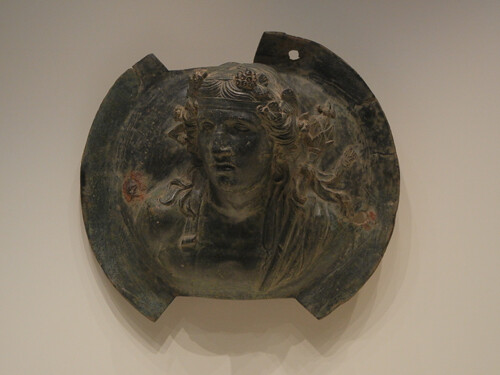
Next, we came upon some impressive statues of gods and goddesses:
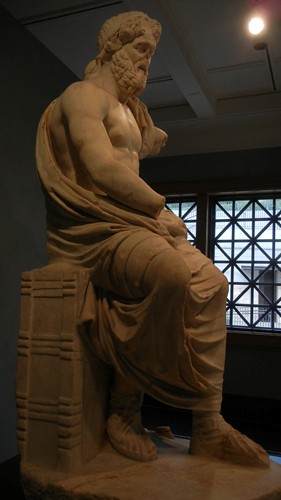
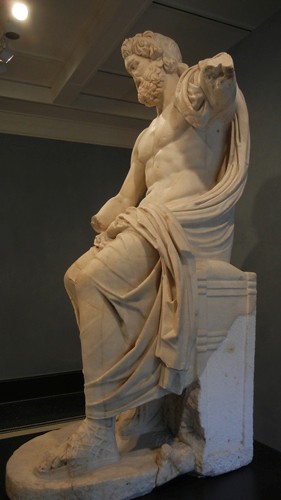
Marbury Hall Zeus, Roman, A.D. 1 - 100
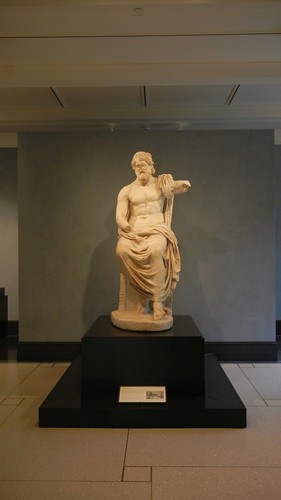

Marbury Hall Zeus (left) and Venus Genetrix, Roman, A.D. 100-200
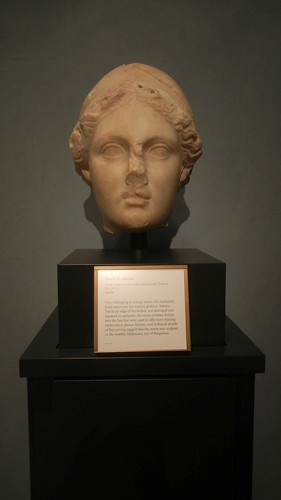
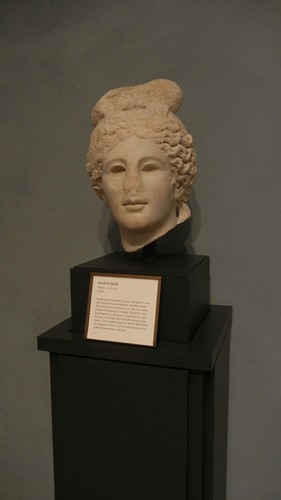
Head of Athena, Greek, 160-150 B.C. (l) & Head of Apollo, Roman, A.D. 175-200 (r)
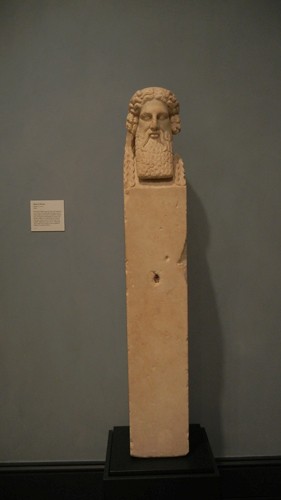
Head of Hermes, Roman
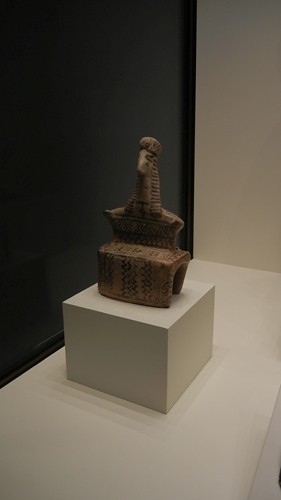
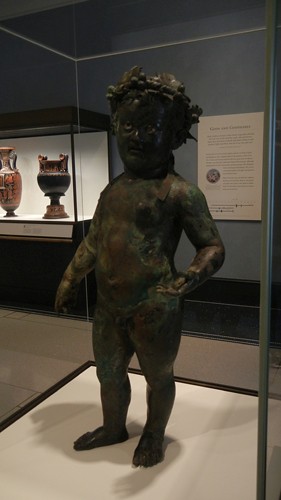
Statuette of a Fertility Goddess, Greek (left)
Move on to next section, we saw more vessels, richer and more decorative; but again, I only responded to whatever touched or pleased me:
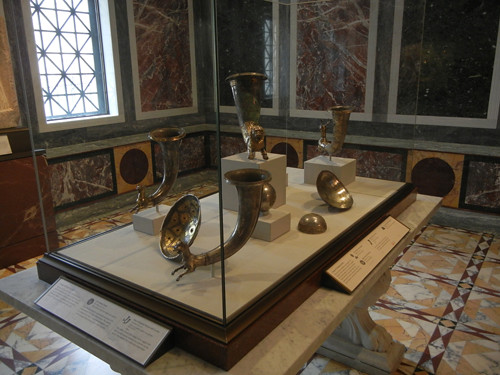
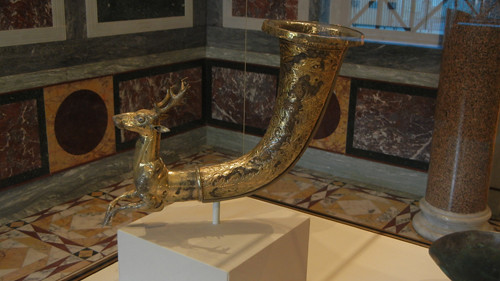
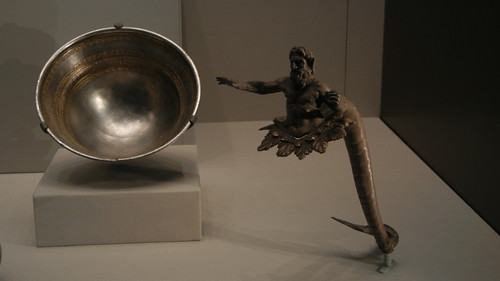
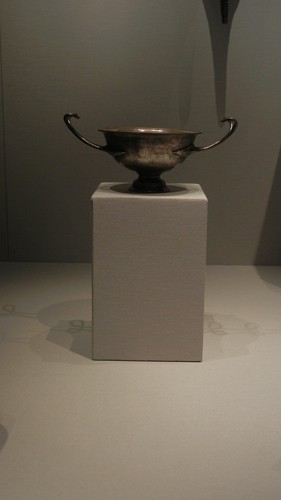
Next, we entered a reconstructed shrine or temple - a hall full of columns and in the niches, statues of gods, goddesses, and nymphs:
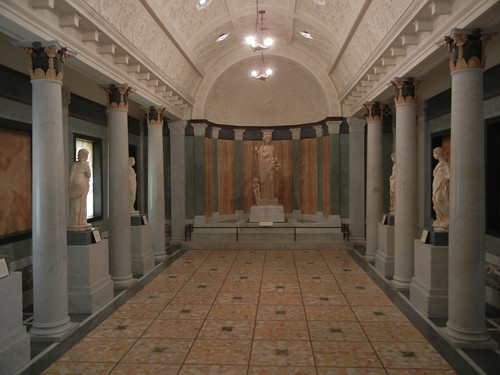
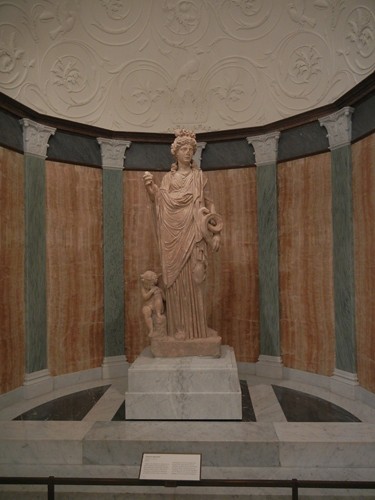
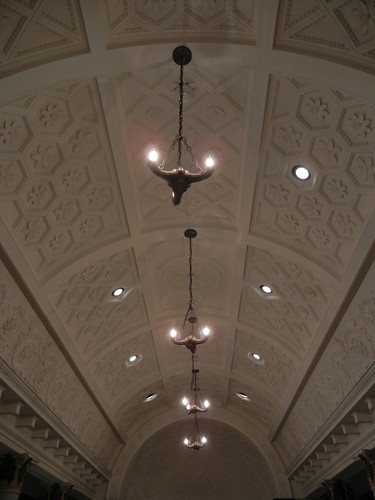
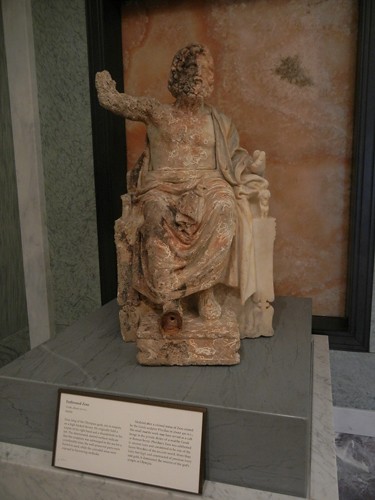
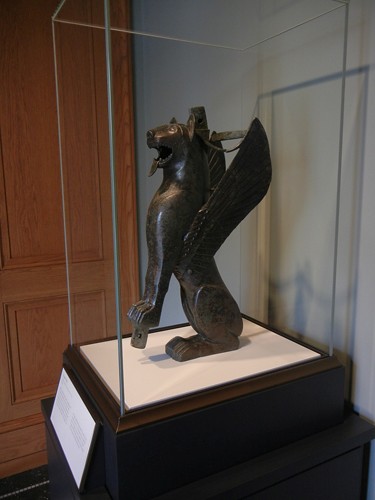
Enthroned Zeus, Greek, c. 100 B.C. (l) & Winged Feline, Tartesian, 700-575 B.C. (r)
In the next shrine, for the Roman sculpture, Lansdowne Herakles, we encountered some of the most memorable and smoothly executed works, though somewhat plastic, however impressive they were:

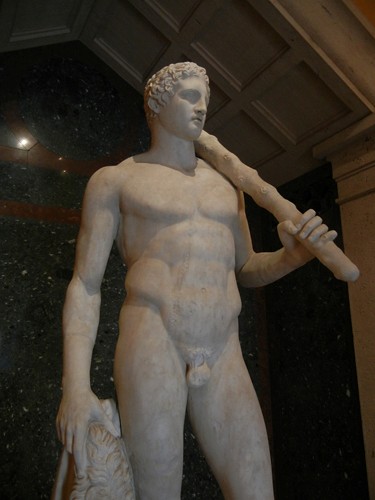
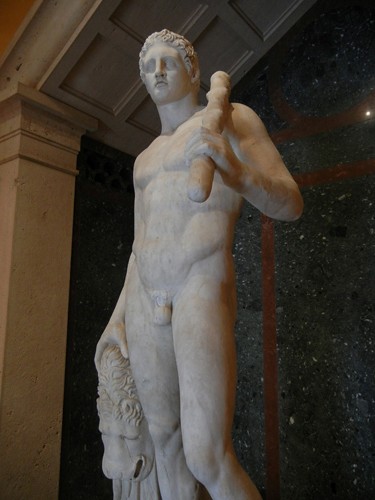
The Lansdowne Herakles, Roman, c. A.D. 125
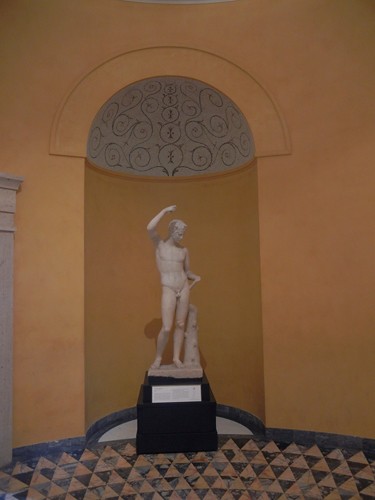

Leda and the Swan, Roman, A.D. 1 - 100 (r)
In the next section, several sirens gave me great delight:
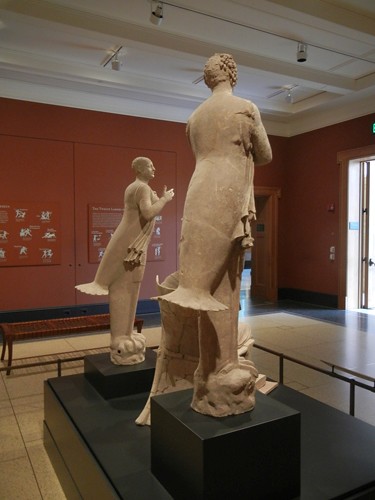
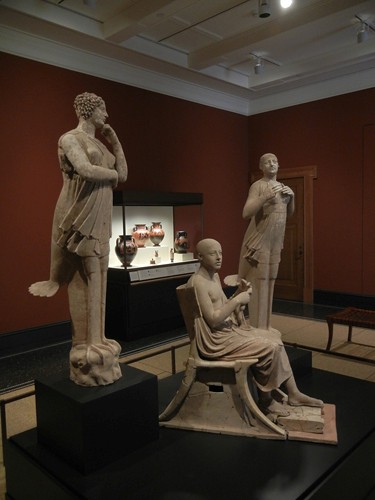
Sirens
We then moved on to another part of the vast villa, which contained much funeral artifacts, with an imposing Venus thrown in:
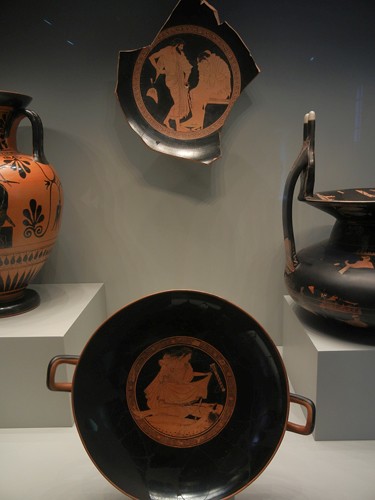
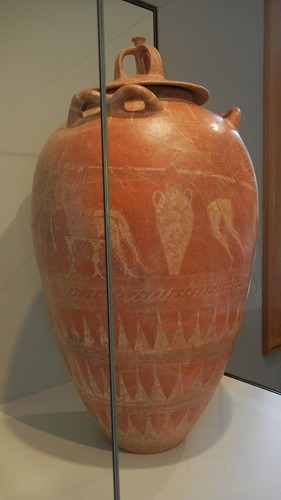
Fragmentary Wine Cup with Achilles, Greek, c 490 B.C., Wine Cup with the Suicide of Ajax, Greek, c. 490 B.C. (l) & Lidded Storage Jar with the Blinding of Polyphemos, Etruscan, 650-625 B.C. (r)
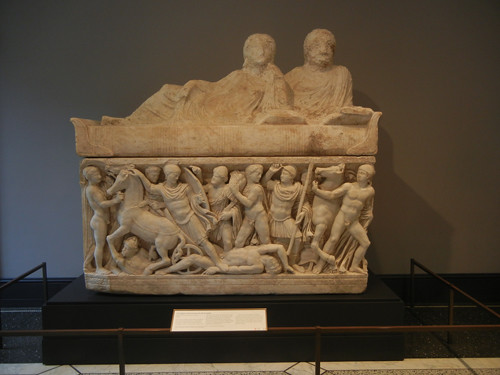
Sarcophagus with Scenes from the Life of Achilles, Roman, A.D. 180-220
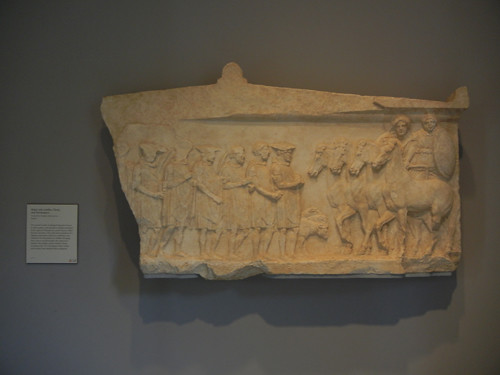
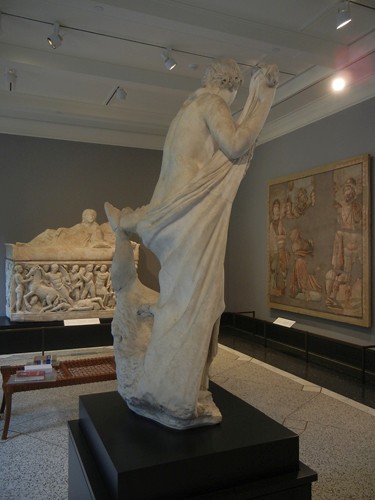
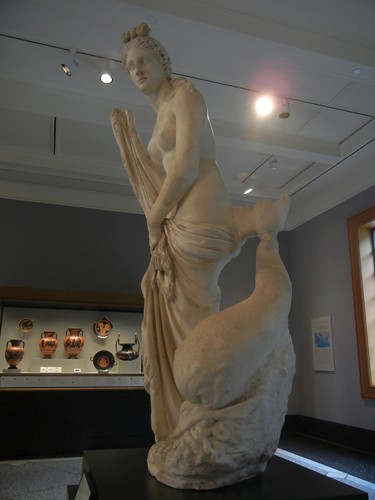
Venus, Roman, A.D. 100-200
Then we spent some time outdoors, to enjoy the view of a large reflection pool and an enchanting intimate garden:
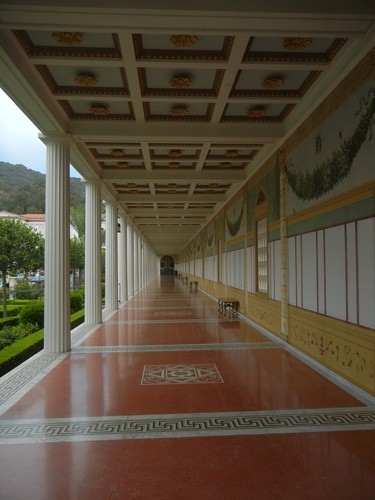
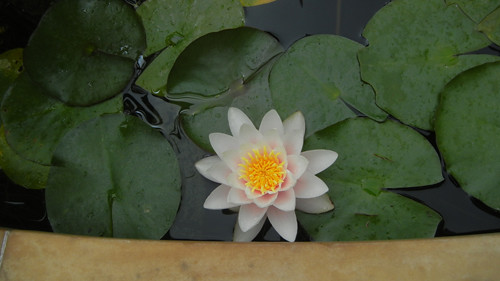
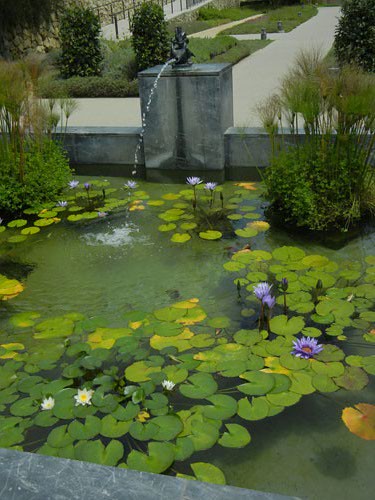
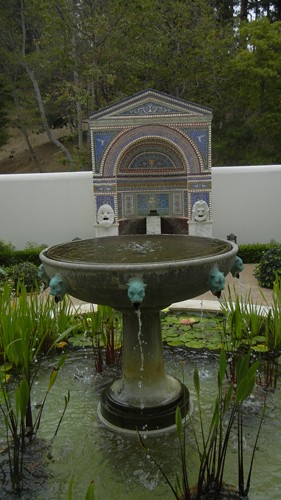
Silence Riding a Wineskin (l)
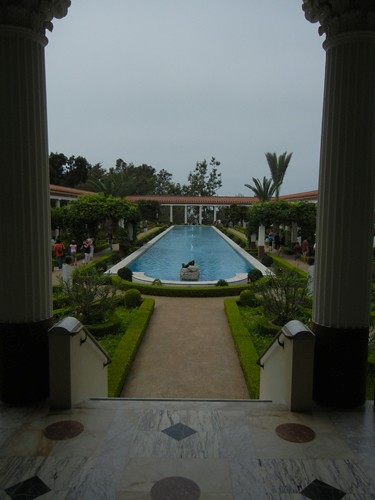
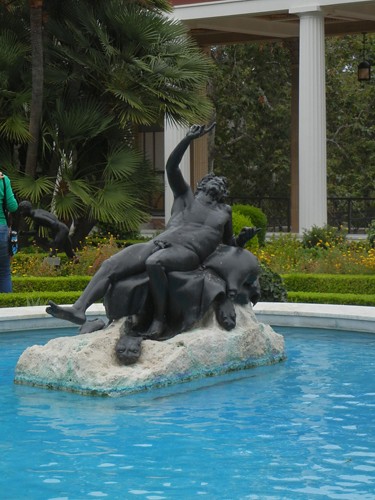
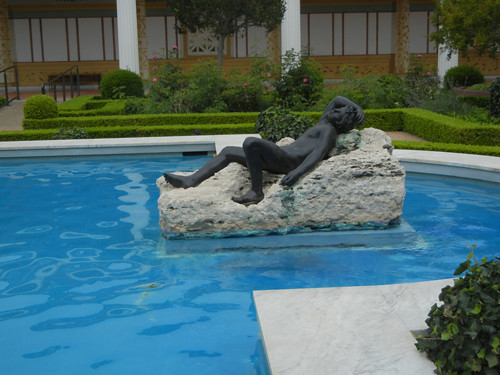
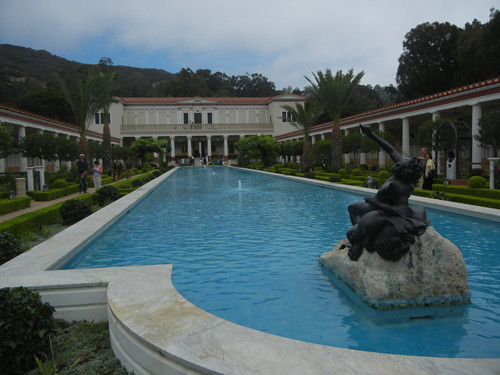
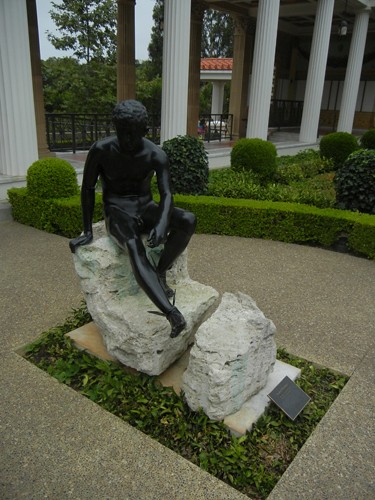
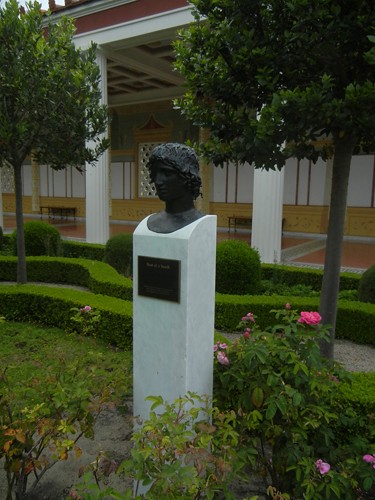
Bust of a Youth, Reproduction of a Roman sculpture from the 1st Century AD (right)
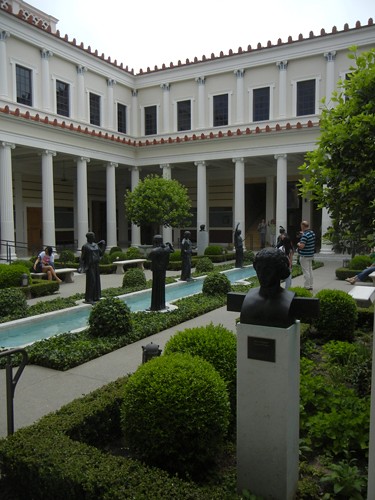
Then we went to another section with more burial artifacts, amongst more sculptures of gods and goddesses - by then I totally lost track of grouping principles, such as the periods and styles of those wonders:
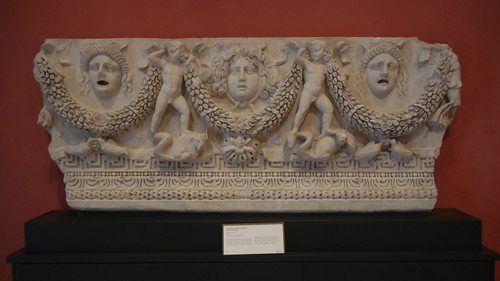
Sarcophagus Panel with Medusa and Theater Masks
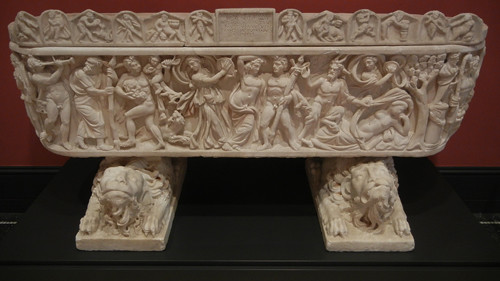
Sarcophagus
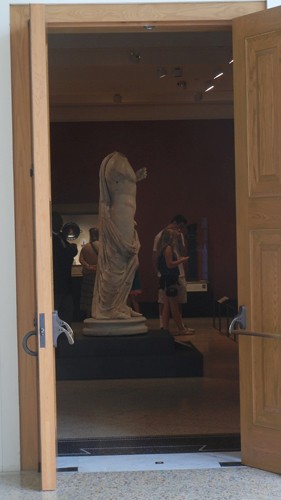
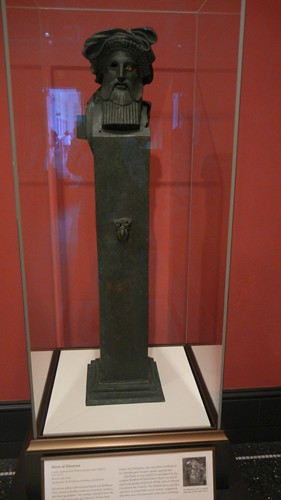
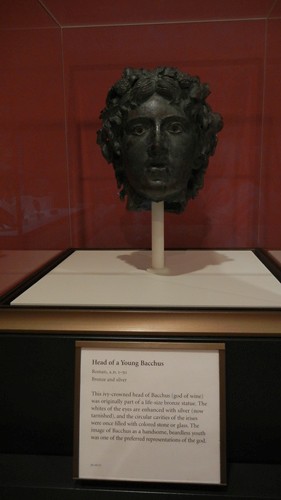
Herm of Dionysos, Greek, 100-50 B.C. (l) & Head of a Young Bacchus, Roman, A.D. 1-50 (r)
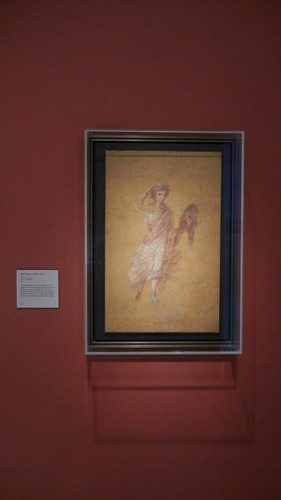
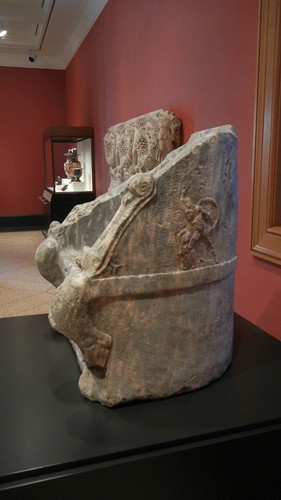
Wall Fragment with a Muse (left)
Then we were in a room with predominantly Roman artifacts, including emperors and empresses, mixed with other Greek objects:
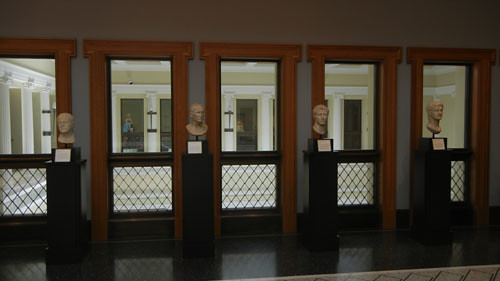

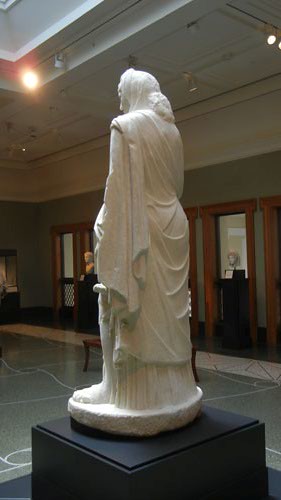
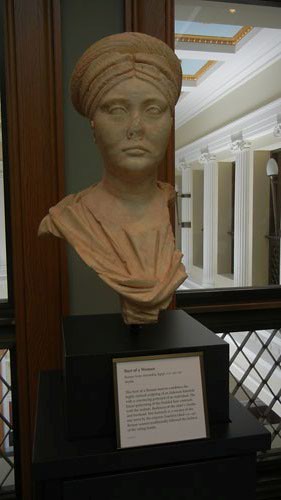
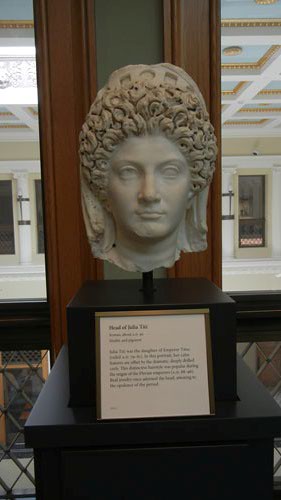
Bust of a Woman, Roman A.D. 140-150 (l) & Head of Julia Titi, Roman, c. A.D. 90 (r)

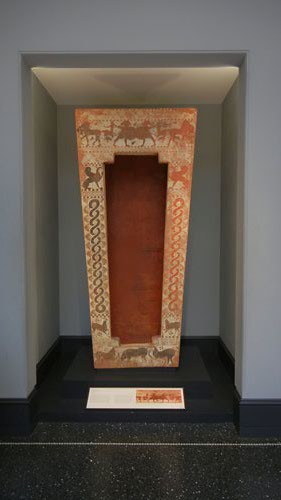
Torso of a Man Wearing Armor, Roman, A.D. 83-85 (l)
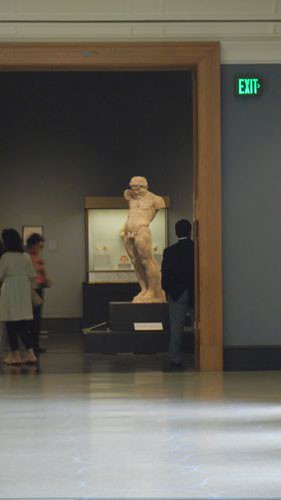
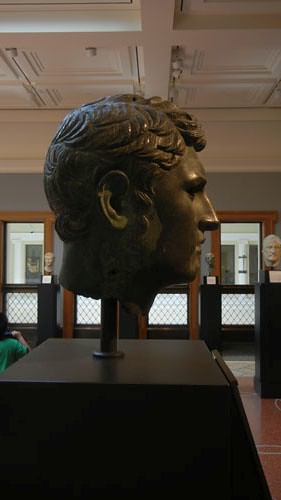
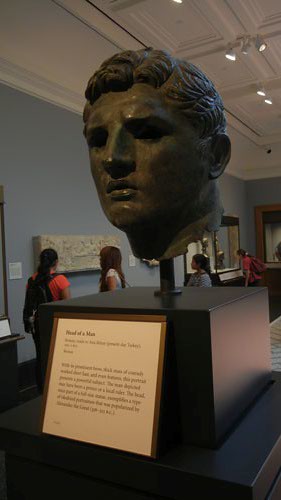
Head of a Man, Roman, 100-1 B.C., Getty Villa, July 2013
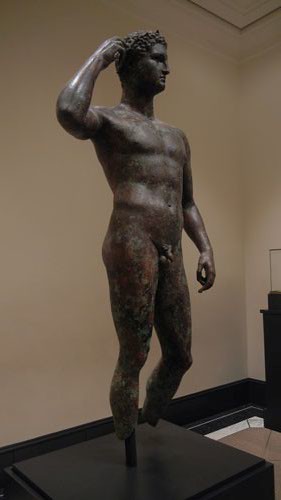
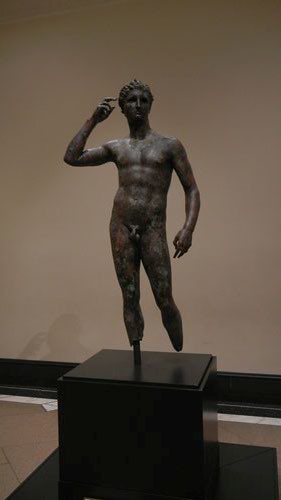
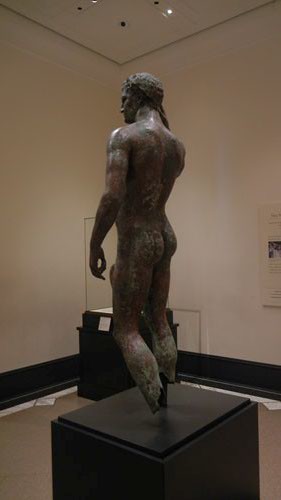
Victorious Youth, Greek, 300-100 B.C.
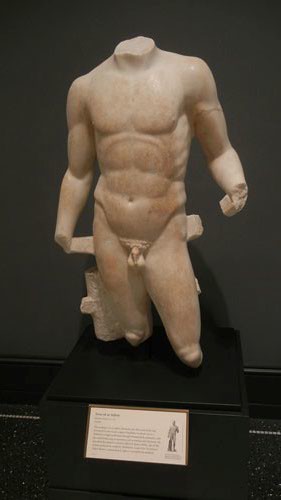
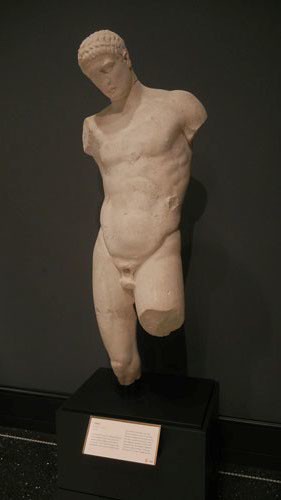
Torso of an Athlete, Roman, c. A.D 100 (l)
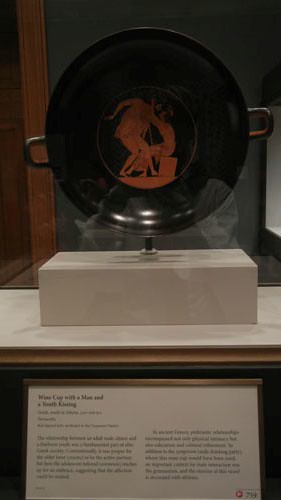
Wine Cup with a Man and a Youth Kissing, Greek, 510-500 B.C.
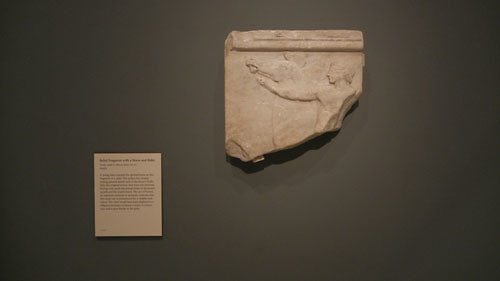
Relief Fragment with a Horse and Rider, Greek, c. 500 B.C.
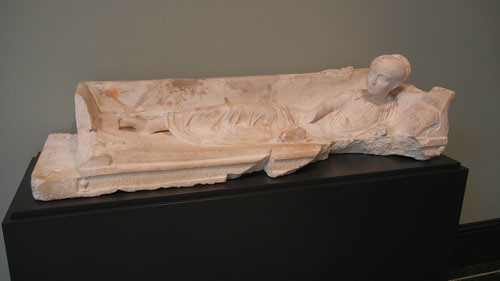
Grave Monument of a Girl, Roman, A.D. 120-140
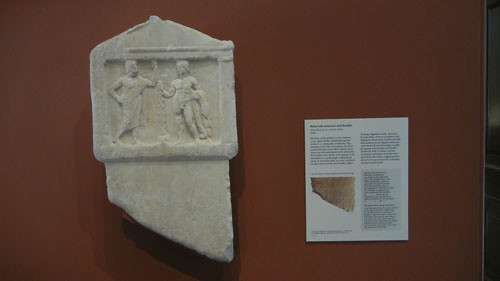
Relief with Antiochos and Herakles, Greek

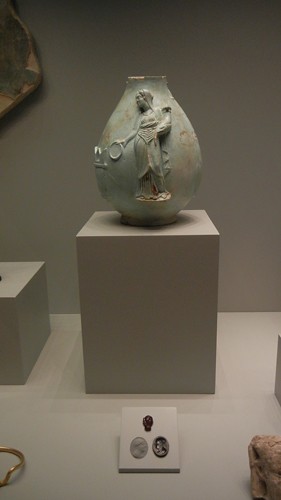

Gravestone of Myttion, Greek (l), Gravestone of Mynnia, Greek, c. 370 B.C. (r)
Then there were more daily objects and curiosities on display in the following rooms:
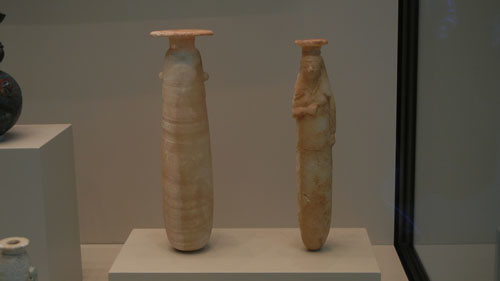
Vessels for Scented Oil - Herding Scenes, Greek, c. 580 B.C. and Veiled Woman, Greek, 575-550 B.C.

Vessels for Scented Oil, Greek or Roman, 100 B.C.- A.D. 25
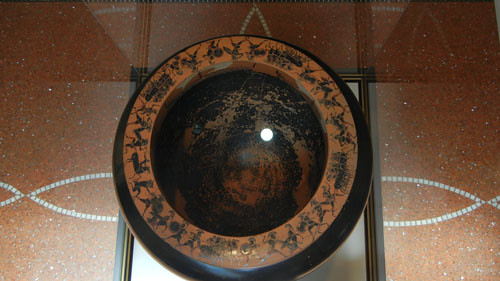
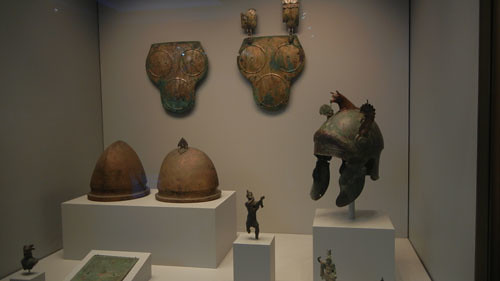
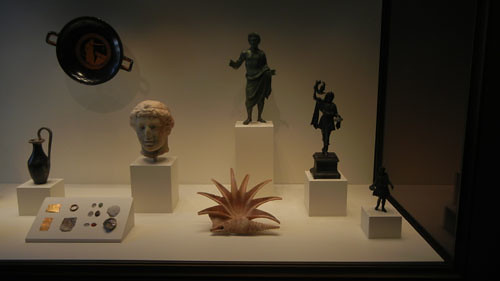
The final section featured some impossibly ancient artifacts, such as ancient Greek Apollo and Cypriot earthenware:
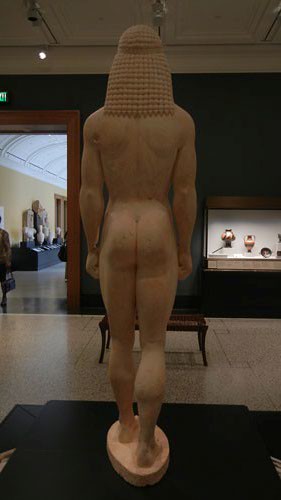
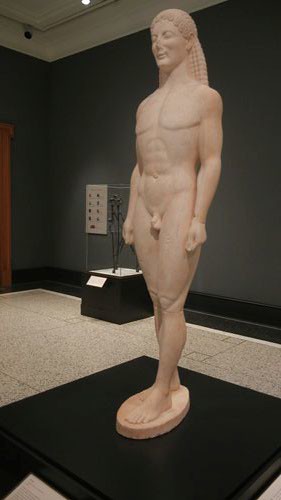
Apollo
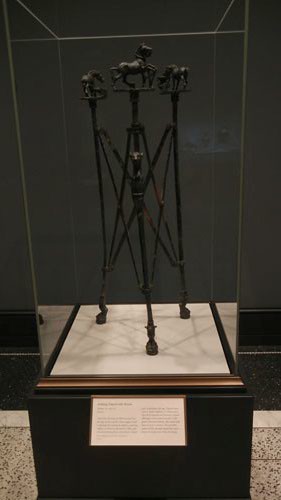
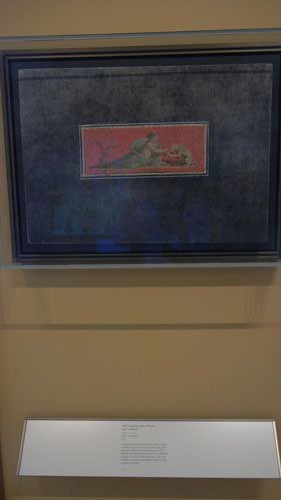
Folding Tripod with Horses
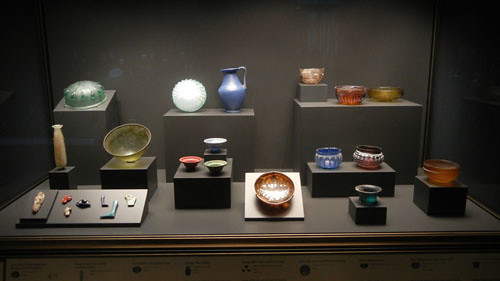
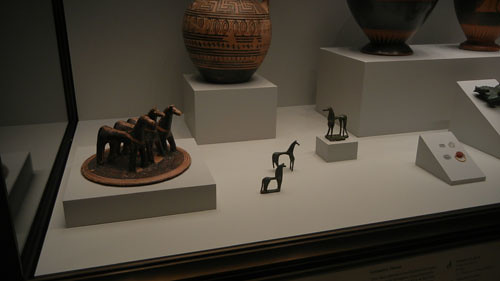
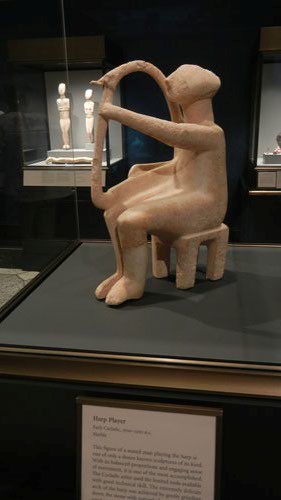
Harp Player, Early Cycladic, 2700-2300 B.C.
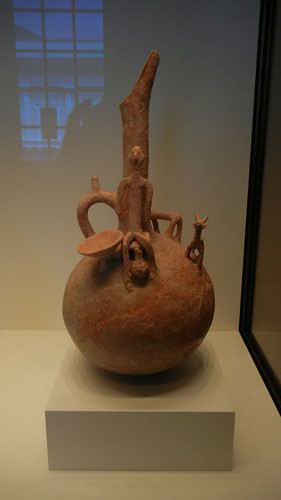
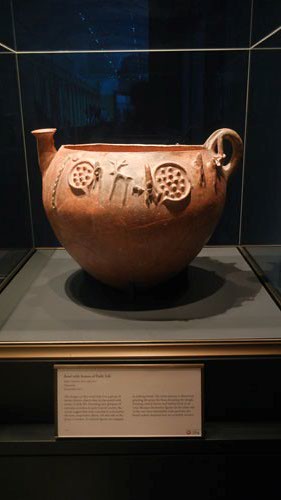
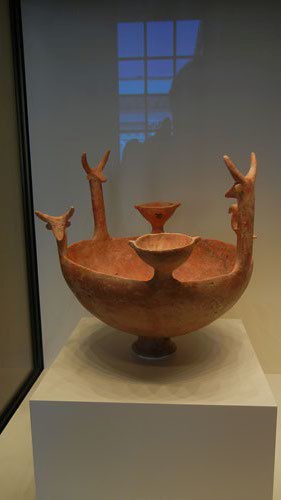
Bowl with Scenes of Daily Life, Early Cypriot, 2000-1900 B.C. (middle)
At the end of viewing the permanent collections, we also had the wonderful opportunity to see a special exhibit: Sicily: Art and Invention between Greece and Rome, which presented 145 objects that bear witness to the athletic and military victories, religious rituals, opulent lifestyles, and intellectual attainments that shaped Classical culture at its peak and included the amazing Statue of a Youth (the Mozia Charioteer), 470-460 B.C., Sikeliote (Sicilian Greek), with remarkable marble curving representing soft, wrinkled drapery over hard and muscled body (see detail below):
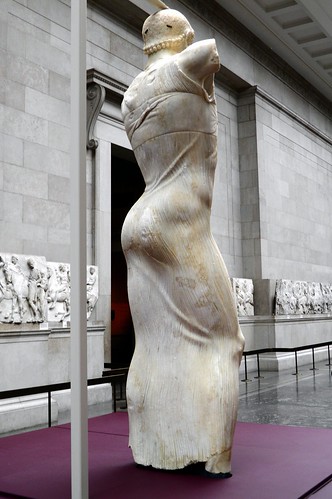
Courtesy of Carole Raddato on Flickr

Courtesy of Carole Raddato on Flickr
Related posts on Art · 文化 · Kunst:
- LACMA - Los Angeles County Museum of Art
- Revisiting Norton Simon Museum in Pasadena
- "Prague", St. Stephen's Day, Richard Diebenkorn and James Turrell
- Urs Fischer Exhibit at MOCA, Los Angeles
- My Favorite De Young Museum Collections
- "Renoir in the 20th Century" - Los Angeles County Museum of Art
- "Up in the Air" and Milling about in the Airport
Label: Los Angeles, Los Angeles Trip 2013





No comments:
Post a Comment